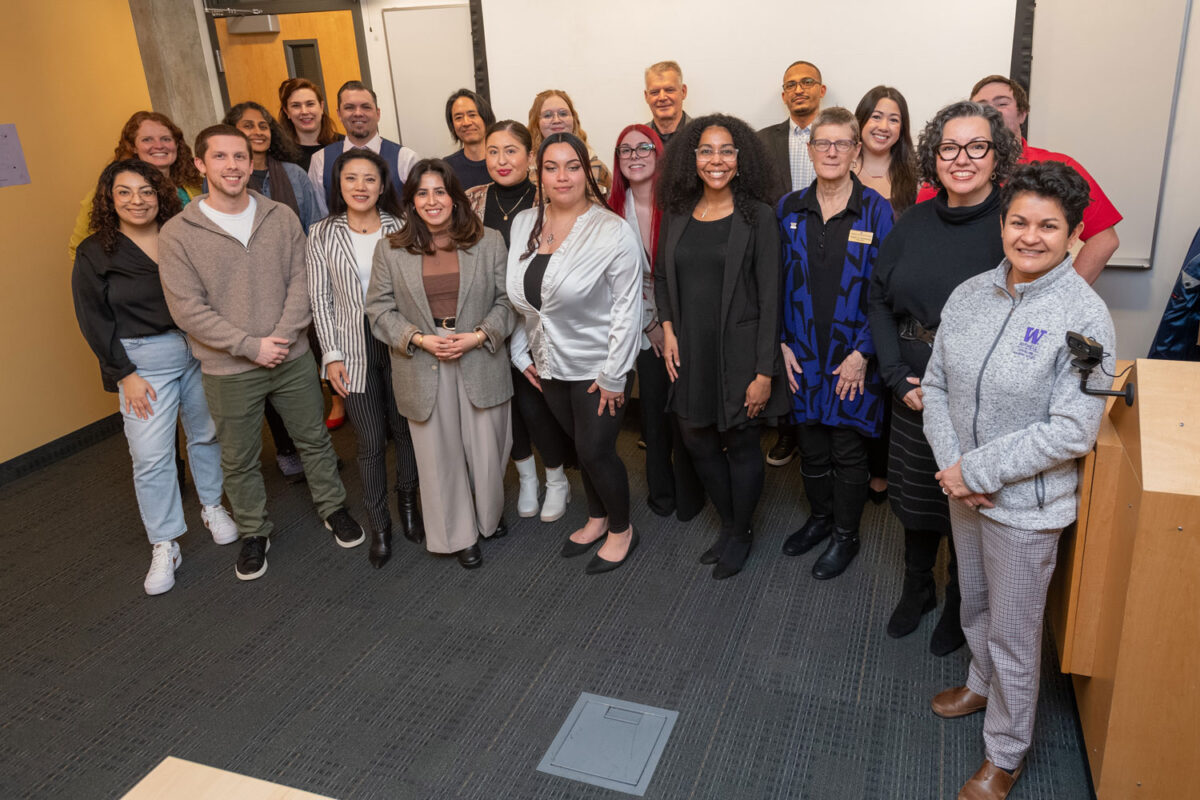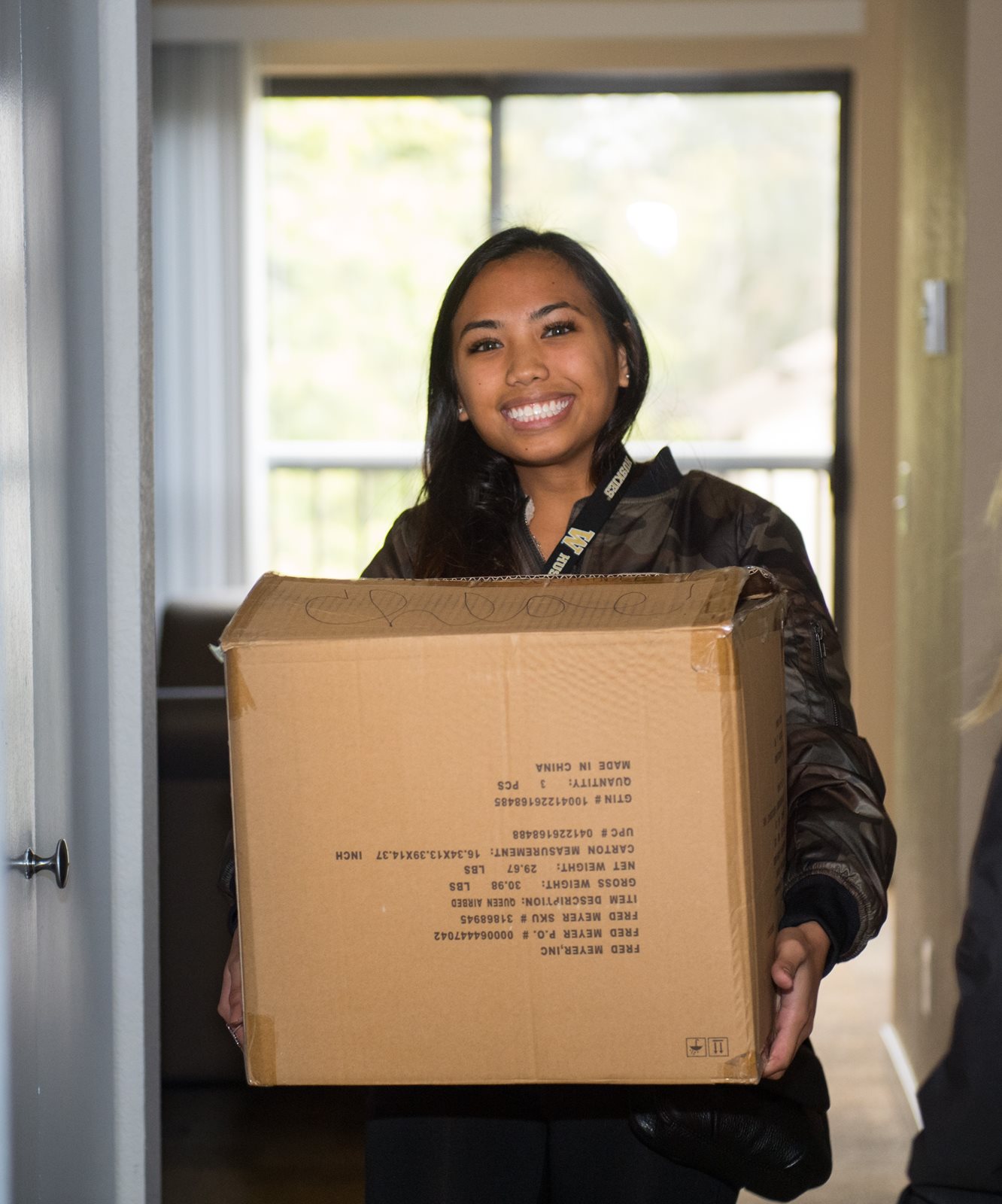
Story Douglas Esser
Photos by Marc Studer
Among the rules for University of Washington Bothell student housing, there’s one that stands out in the “no pets” category. “Students may have non-flesh eating fish housed in an aquarium which cannot exceed the size of a 5-gallon tank.”
So, no flesh-eating fish. What’s that all about?
“Piranhas,” says Katie DeWilde Horowitz, director of residential life and student conduct. The incident that led to that rule is lost to history, unfortunately.
Frogs and turtles also are fauna non grata. If you want an aquarium in your unit, “It needs to be fish that eats fish food,” Horowitz says.
Goldfish and guppies are actually the least of the issues for the office of residential life as about 270 students settle into 90 Husky Village and 20 Campus View apartments. The University is literally their home. Friday was move-in day – the sixth such day at Husky Village since the apartment complex was purchased by the University.
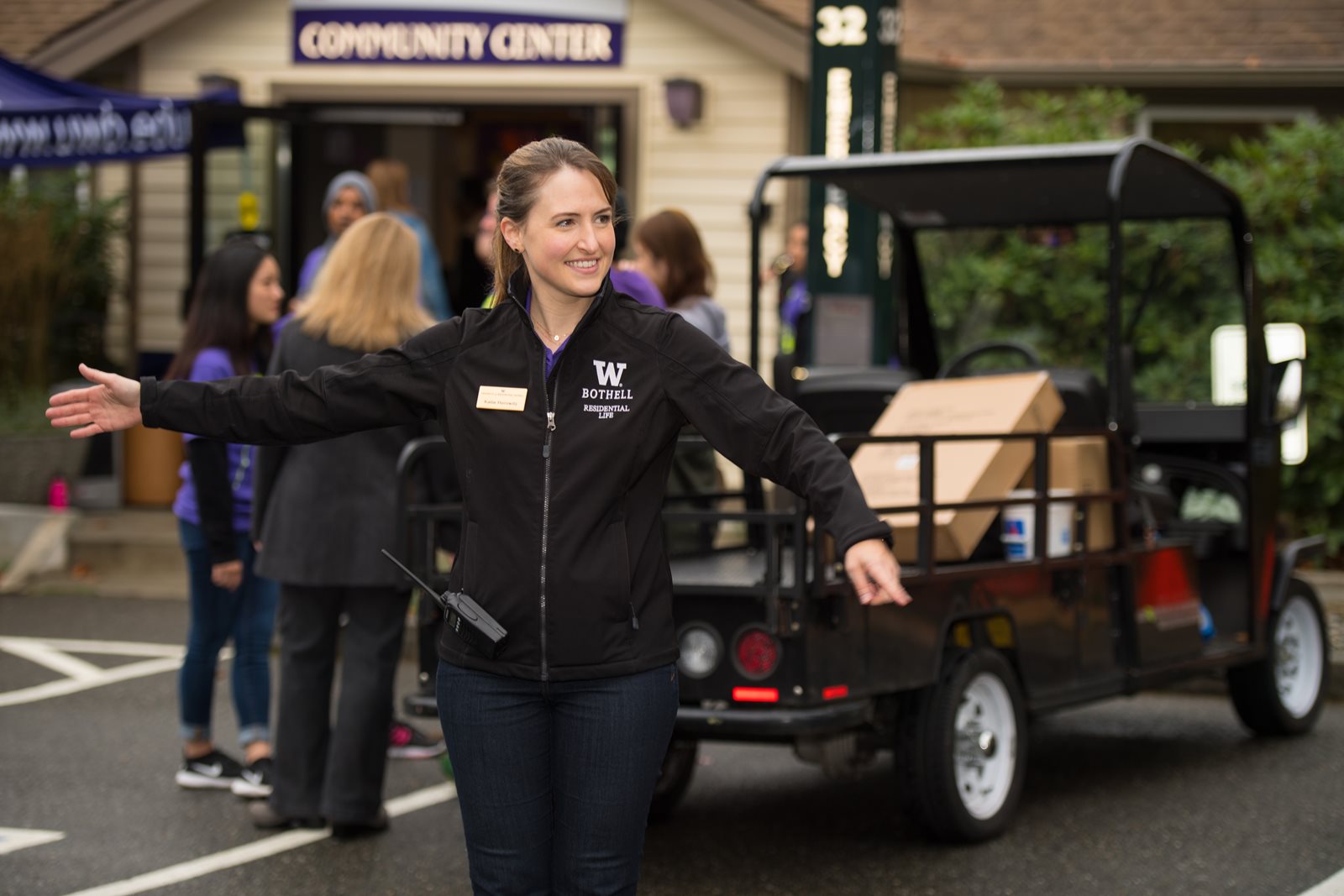
“We’re a well-oiled machine at this point,” said Horowitz, directing traffic, above. She detected a “good excitement level” among students checking in for their keys.
Under the watchful eyes of his father, Perry Donan, Joseph Donan moved for the first time away from their home in Yelm.

“It’s kind of weird packing everything you own into boxes, but besides that it’s kind of fun,” said Donan, left, the former president of his high school robotics club who is interested in mechanical engineering at UW Bothell.
With his hands full of paperwork and the red backpack with emergency supplies handed out to each student, Van Nguyen, right and below left, kept a sunny smile on a cloudy day. The first year student from Renton says he also was attracted by the School of Science, Technology, Engineering & Mathematics.
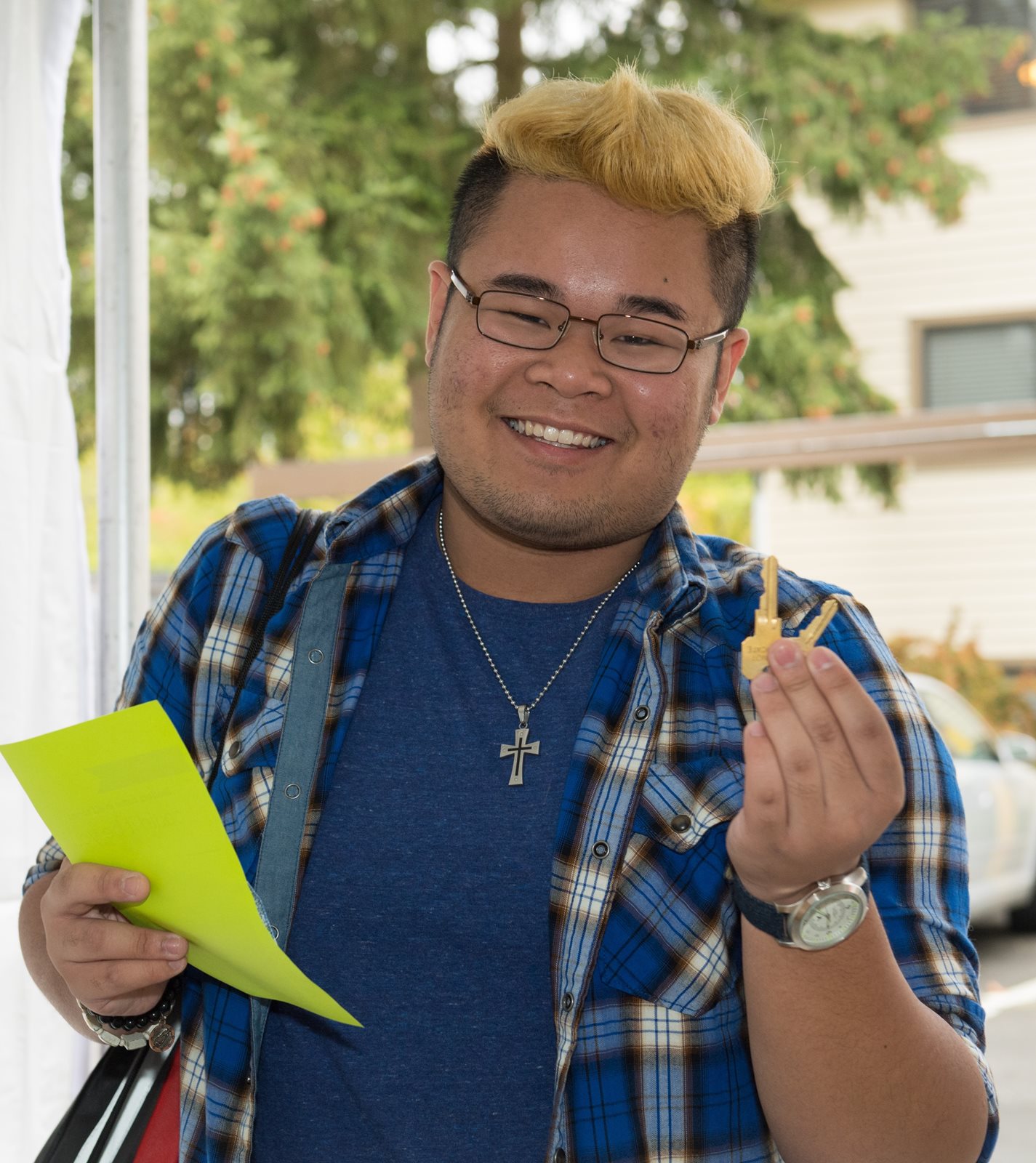
Nguyen likes a smaller campus and the idea of a young university. He plans to continue social justice work he started with the Seattle group 21 Progress, which deals with labor, immigration and civil rights issues.
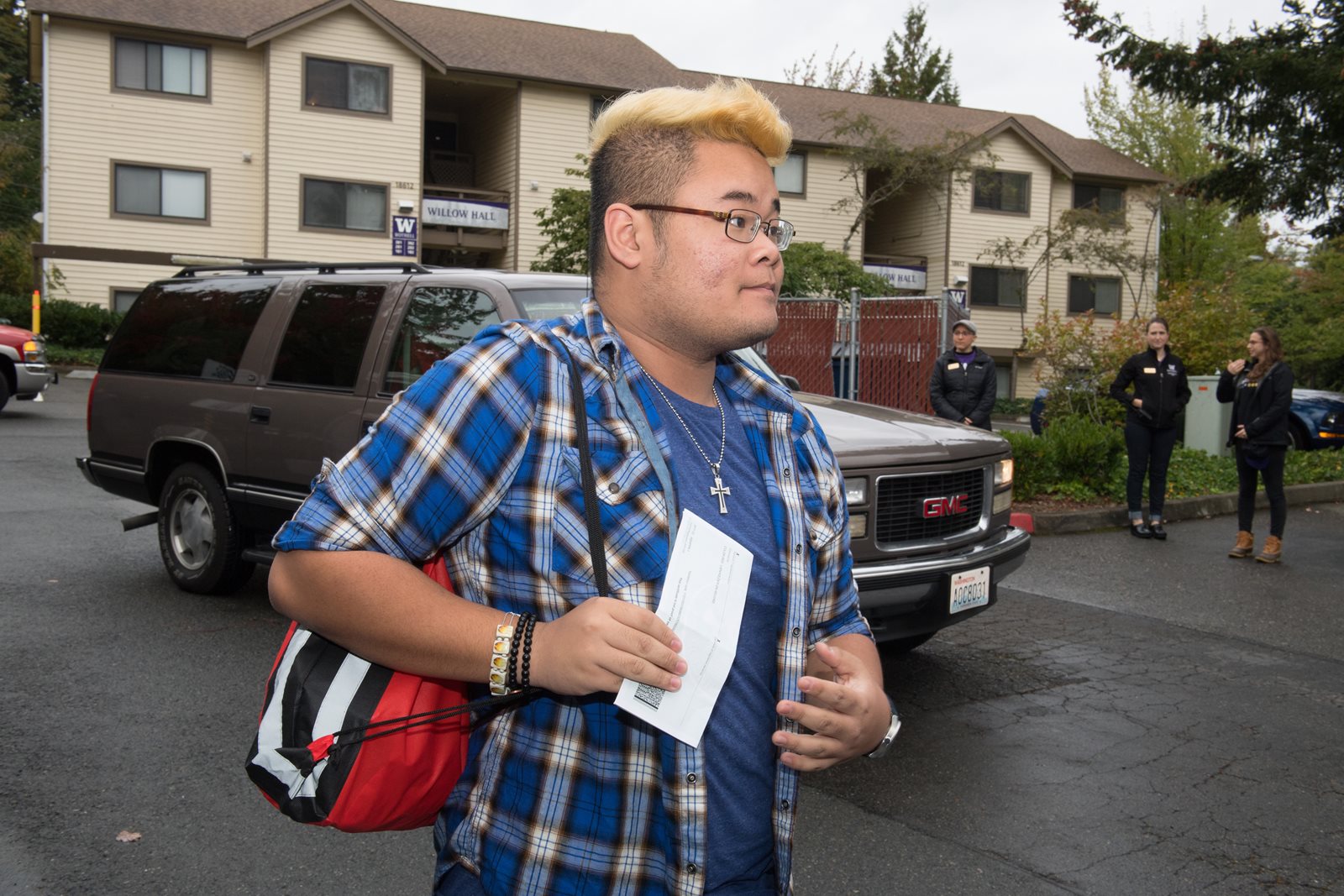
Students are finding resources beyond bed and bath. The priority of three live-in professional residential directors and 10 student residential advisers is the whole student, says Horowitz.
“Everything we do ties back to learning outcomes and educational goals,” she says. “We want to see students be successful.”
The advisers counsel students with academic or social problems and mediate conflicts. They take the time to sit and talk it through, says Horowitz. They can link students with financial aid, and they can find groceries from Husky Pantry donations for students who run out of money for food. One student asked for help after eating nothing but Cheetos for three days, Horowitz says.
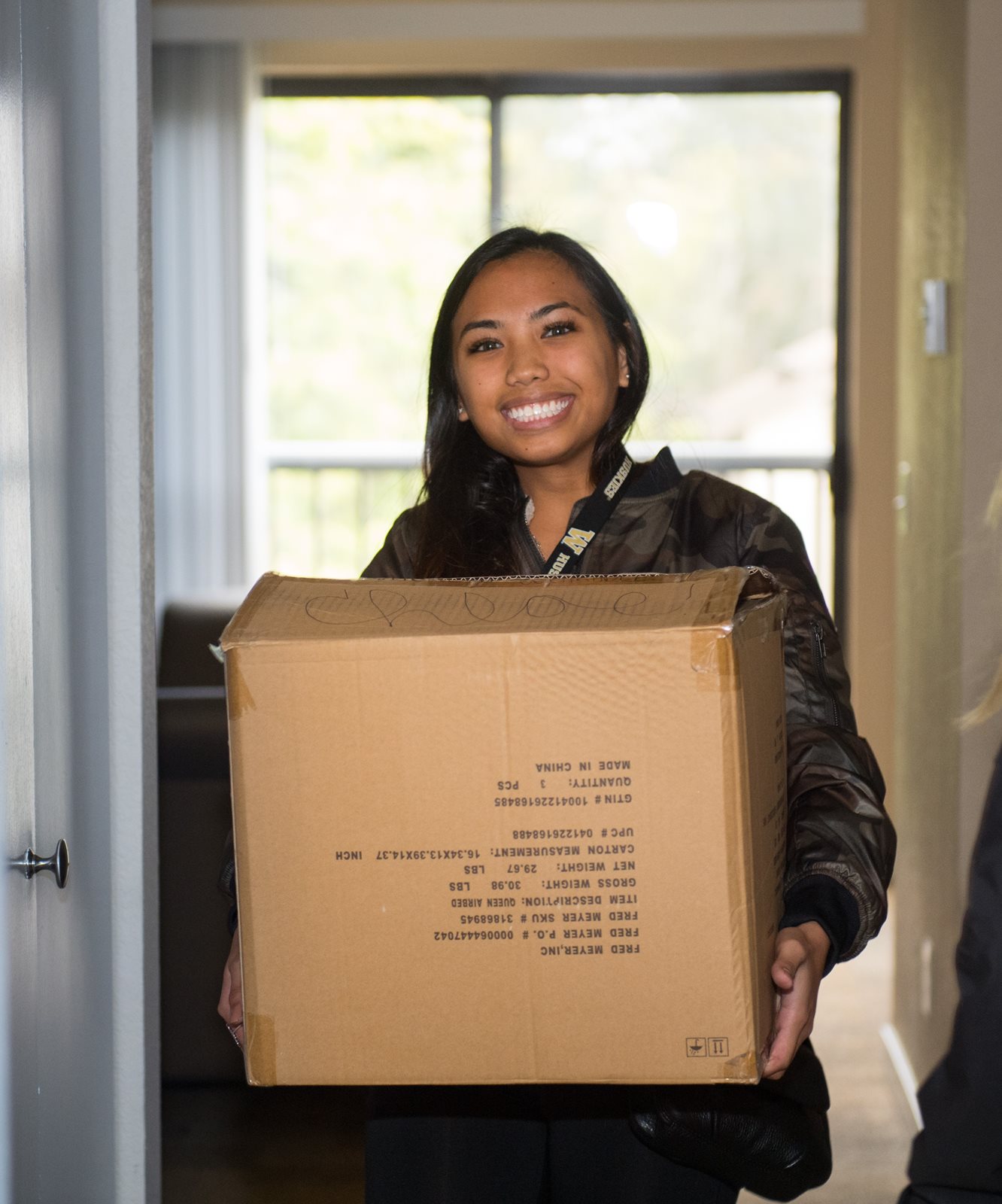
“The RA can be that glue that connects them to campus, putting a face to the University right off the bat,” says Horowitz. Photo right: Chloe Morris
Surprisingly, nearly half the residents are local residents within commuting distance who choose campus housing for the college experience, says Horowitz.
“They want to live with their peers,” she says. “They want to get involved.”
About half of the residents are first year students, and about half are returning residents coming back to a place they know works well. Very few are transfer students. All are single. There’s currently no capacity for family housing.

Photo: Erica Vauncia, Adilene Amaro
Only about 40 of the residents are international students, says Horowitz. About 100 students are on the waiting list.
“We have demand; students want to live in housing,” she says.
In addition to easy walking distance to class, security provided by the campus safety department and the tender oversight of residential advisers, UW Bothell housing hosts living-learning communities. Created in partnership with the first-year and pre-major program, these are communities that extend learning from the classroom to the living room.
“It’s living where you’re learning,” says Horowitz. “Learning isn’t just about the classroom. It happens everywhere.”
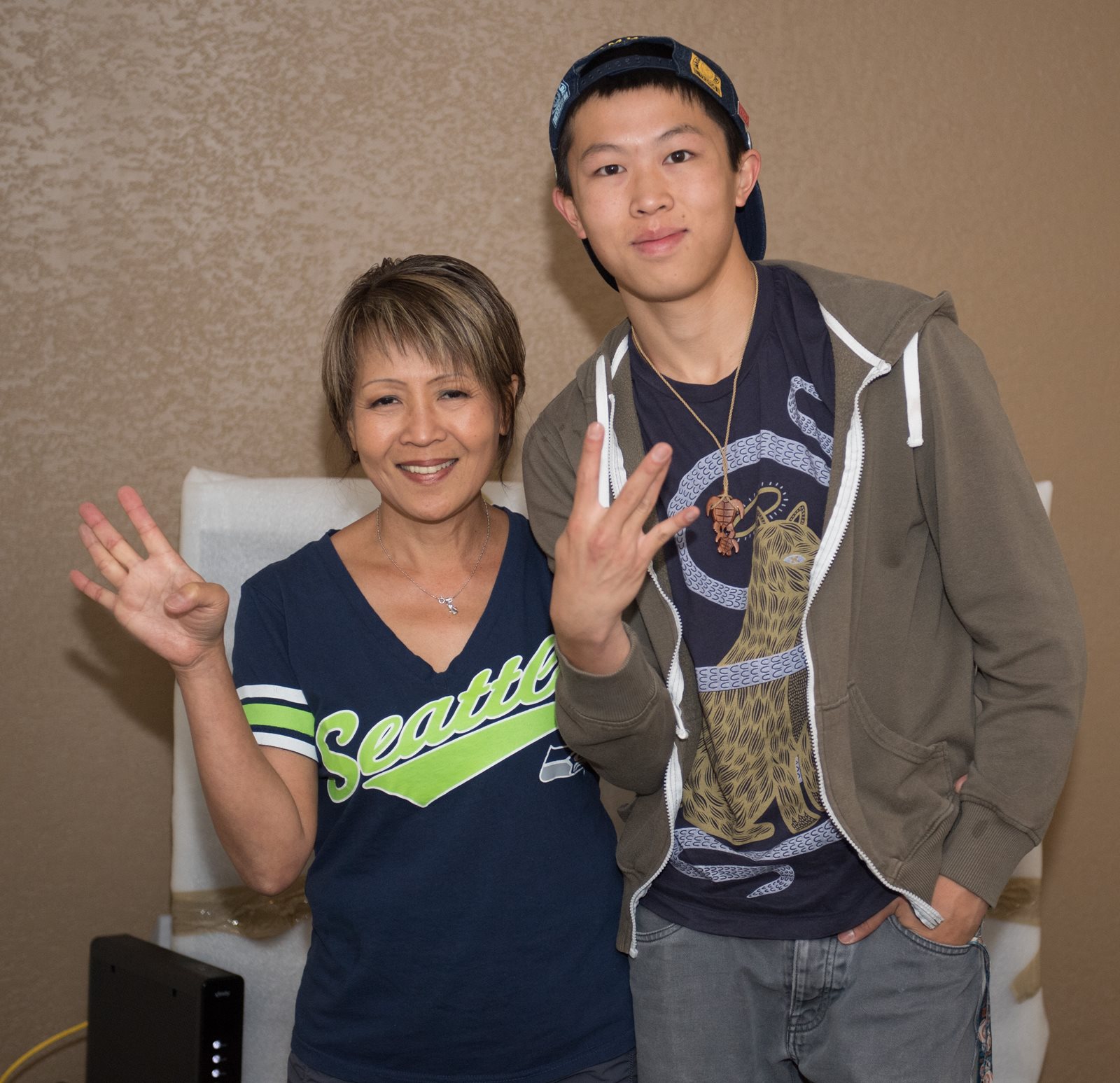
University housing has its restrictions, such as no candles or other open flames and the no-piranha policy. Most students welcome rules such as quiet hours from 10 p.m. to 8 a.m. for homework and sleep.
Photo: Qmyzn Lu and son Derrick Chim.
The housing costs a student roughly $1,000 a month and Horowitz says, “We want to make sure we give them value.” The residential life staff is committed to connecting students with campus and building a sense of belonging.
“We want students to feel like this is their community,” she says. “This is their home.”
See more move-in day photos on flickr.



